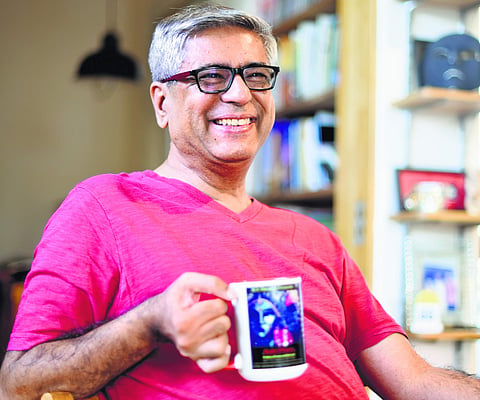
- LIFESTYLE
- FASHION
- FOOD
- ENTERTAINMENT
- EVENTS
- CULTURE
- VIDEOS
- WEB STORIES
- GALLERIES
- GADGETS
- CAR & BIKE
- SOCIETY
- TRAVEL
- NORTH EAST
- INDULGE CONNECT

The first playwright in English to be awarded the Sahitya Akademi Award, this Bengaluru-born playwright needs no introduction. Starting from 1980, playwright Mahesh Dattani wrote Dance Like a Man and Tara in 1990. While the play Dance Like a Man revolved around the gender differences and how a man should not pursue a career that makes him less of a man, Tara, on the other hand, highlighted the issue of female infanticide. His plays like 30 Days in September (2001), Final Solution (1993) among several others centre around the conflicts over men and women’s traditionally prescribed roles, religious biases, and political disturbances and have become voices of the marginalised. Adding to the marvelous list of his experiments is his first Hindi play Hasmukh Saab ki Wasihat, a teleplay on Zee Theatre. Translated from Mahesh’s original English play Where There’s a Will (1988) by Rahul Valmiki, the play revolves around a rich, autocratic businessman who doesn’t relinquish control of his family even after his death. He tries to control them through his will; however, he is in for a surprise. The play features veteran actors Mohan Agashe, Seema Pahwa with Achint Kaur, Mona Wasu and Gagan Sethi. We speak to the Mumbai-resident about the play, the cast and how theatre has evolved over the years.
Just like all your plays, Hasmukh Saaab Ki Wasihat is also set on the backdrop of an upper-class family. What makes the urban elite class a common setting in your plays?
I think the inspiration is my own milieu. Most of my characters come from a background of wealth. There is a line in the play which says, ‘I know who we are; we are middle-class people with a lot of money.’ So, that pretty much is my merchant class background. My father was a businessman who rose from being middle class to upper class so that has become a kind of standard-setting for most of my plays written in the ’90s and even early 2000’s. One must write things of the milieu and society that one is familiar with, that’s why almost all the writers known for writing about certain social-economic backgrounds reflect their own influences or that they are familiar with in some way.
You also highlight contradictions between individuals and their internal conflicts through your characters, yet there is a triumph at the end. How do you craft these elements?
Yes, absolutely. The crux of my plays is always about internal and external conflicts. For instance, this play deals with patriarchy and how a man, even after he dies, wants to control the women through his will. But the women of the house — his wife, mistress and daughter-in-law find a way of bonding and outsmarting the patriarchal ghost. Here, the man is following what his father did and women, on the other hand, are dealing with internal conflicts like being a dutiful wife and a devoted mother but towards the end, she finds that she can also have aspirations and desires.
The play has an interesting ensemble cast...
I think it’s very important. Unlike cinema where directors have used non-actors and yet made beautiful films, one being Satyajit Ray, theatre relies on performance and experienced actors are very important because that’s what the complete performance is based on. Two things work in theatre — one is the script and other performance, so you need to have a strong foundation.
You spoke about inclusivity and LGBTQIA+ identities in your plays. How far do you think have we come in terms of writing about subjects like these?
If you compare the ’90s and millennium and 2020’s, we have come a long way because when I was writing about LGBTQIA+ issues, the term didn’t even exist but now we have exclusive writings about the LGBTQIA+ identity. It’s nice to see that the topics like child abuse and physical abuse are discussed and acknowledged — that these things exist and aren’t brushed under the carpet.
How do you see the evolution of teleplays?
I think it’s important to reinvent ourselves. Art is very much about time and place. How I wrote in the ’80s is not how I write today and it’s not an overnight change. It’s a slow evolution. Now I am of a different generation. There was a time when I was young and foolish. Now I have come to a time when I am old and foolish so it’s always about learning new things. Teleplay is still theatre. Theatre is transitory in nature and the digital platform offers great document for posterity and gets you some kind of index about how the play was performed in that period. There is no document of how I did plays in the ’80s and ’90s but now we can have that. Play scripts remain but not the performance and the production designing elements.
HSKW is streaming on Airtel Spotlight.
priyanka.chandani@newindianexpress.com